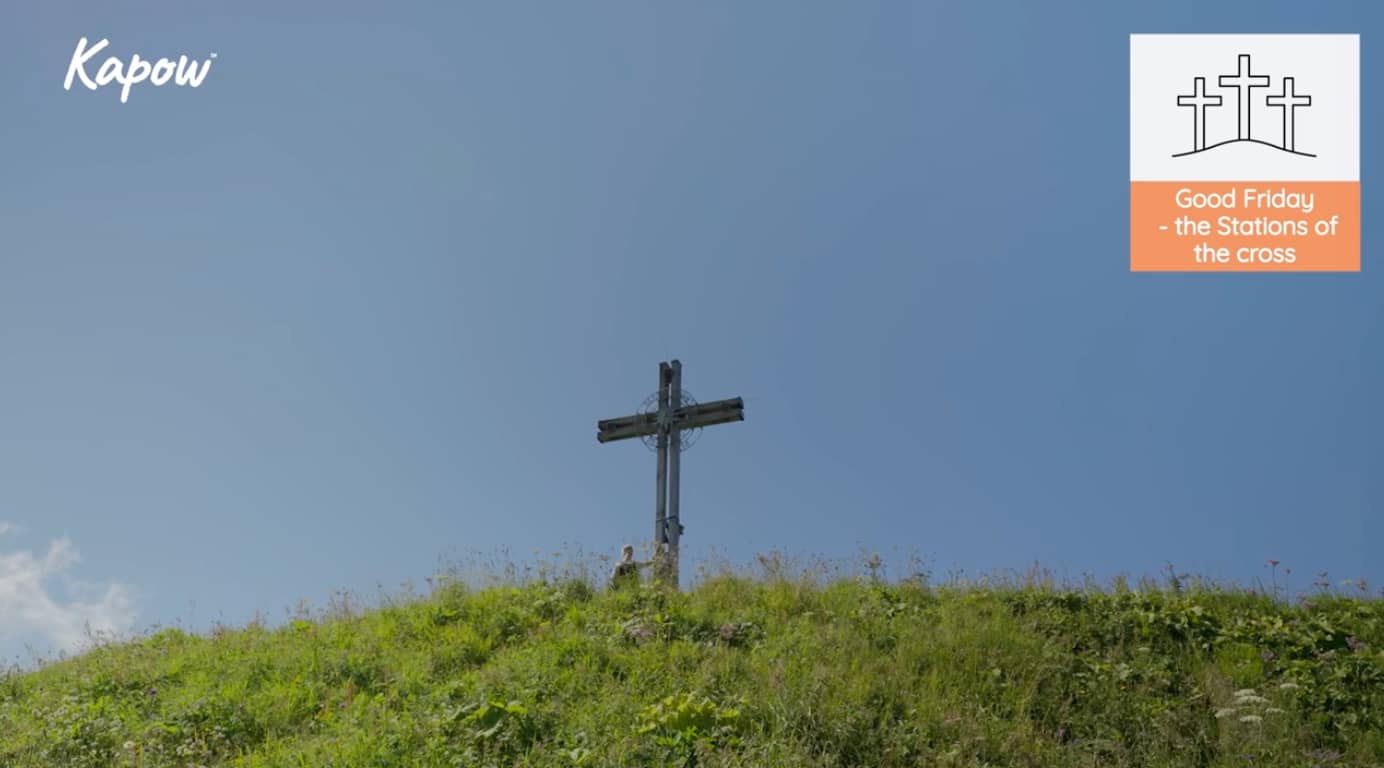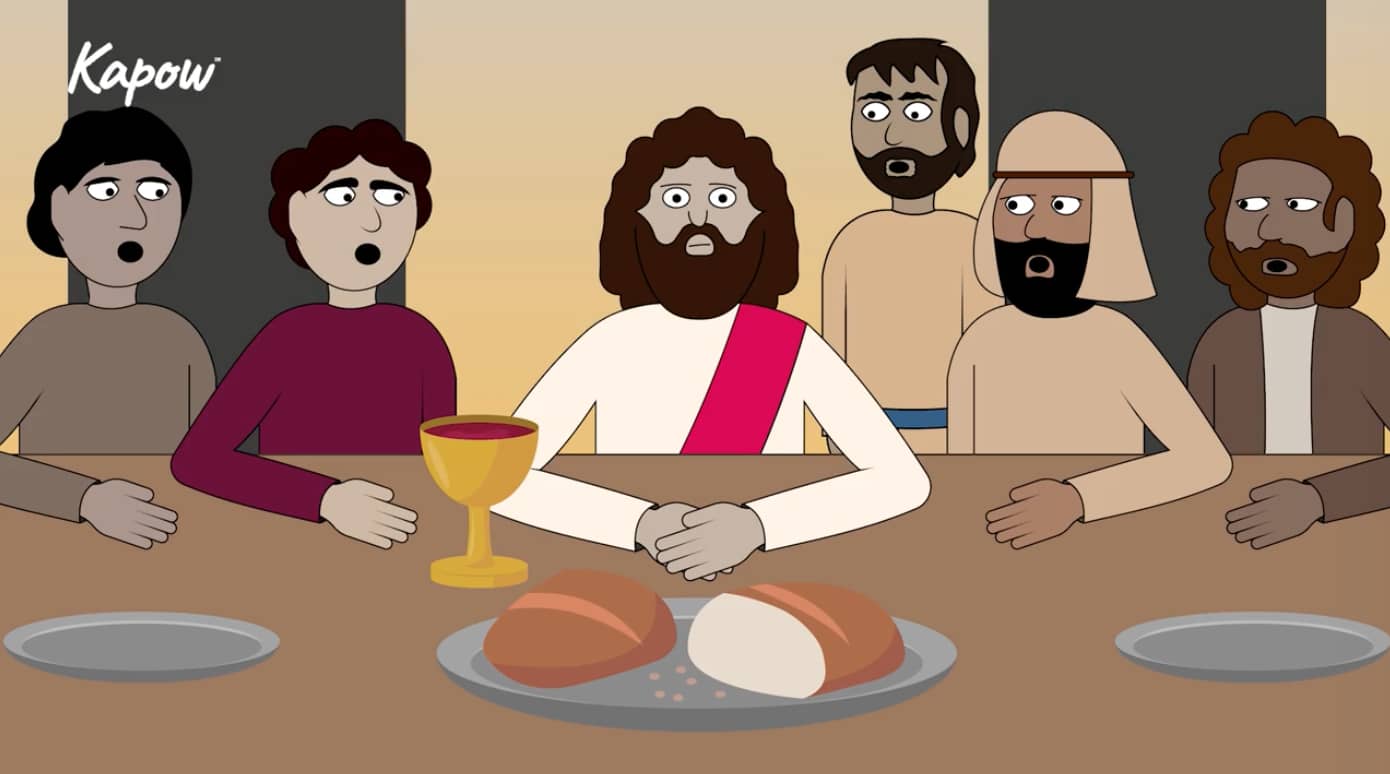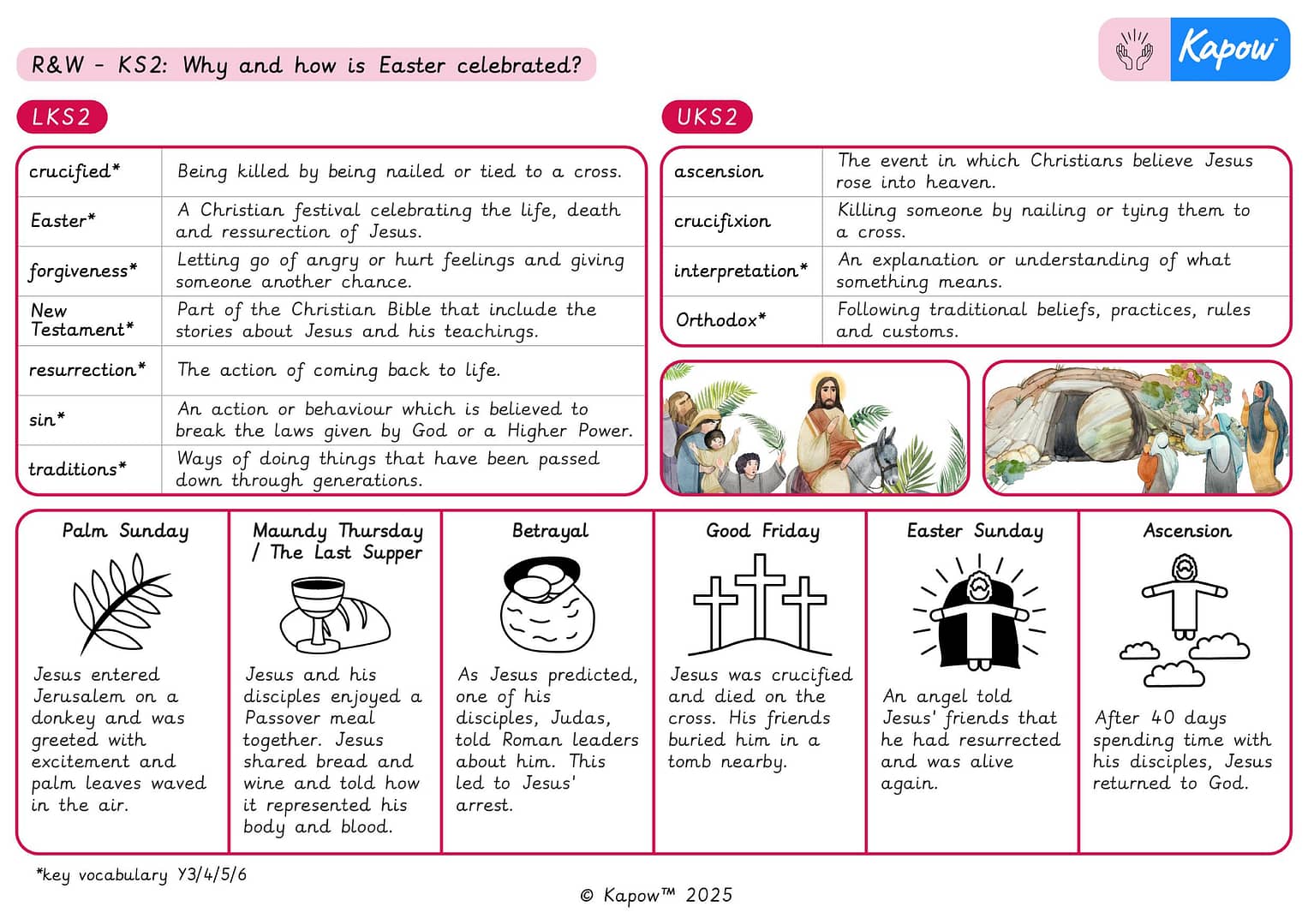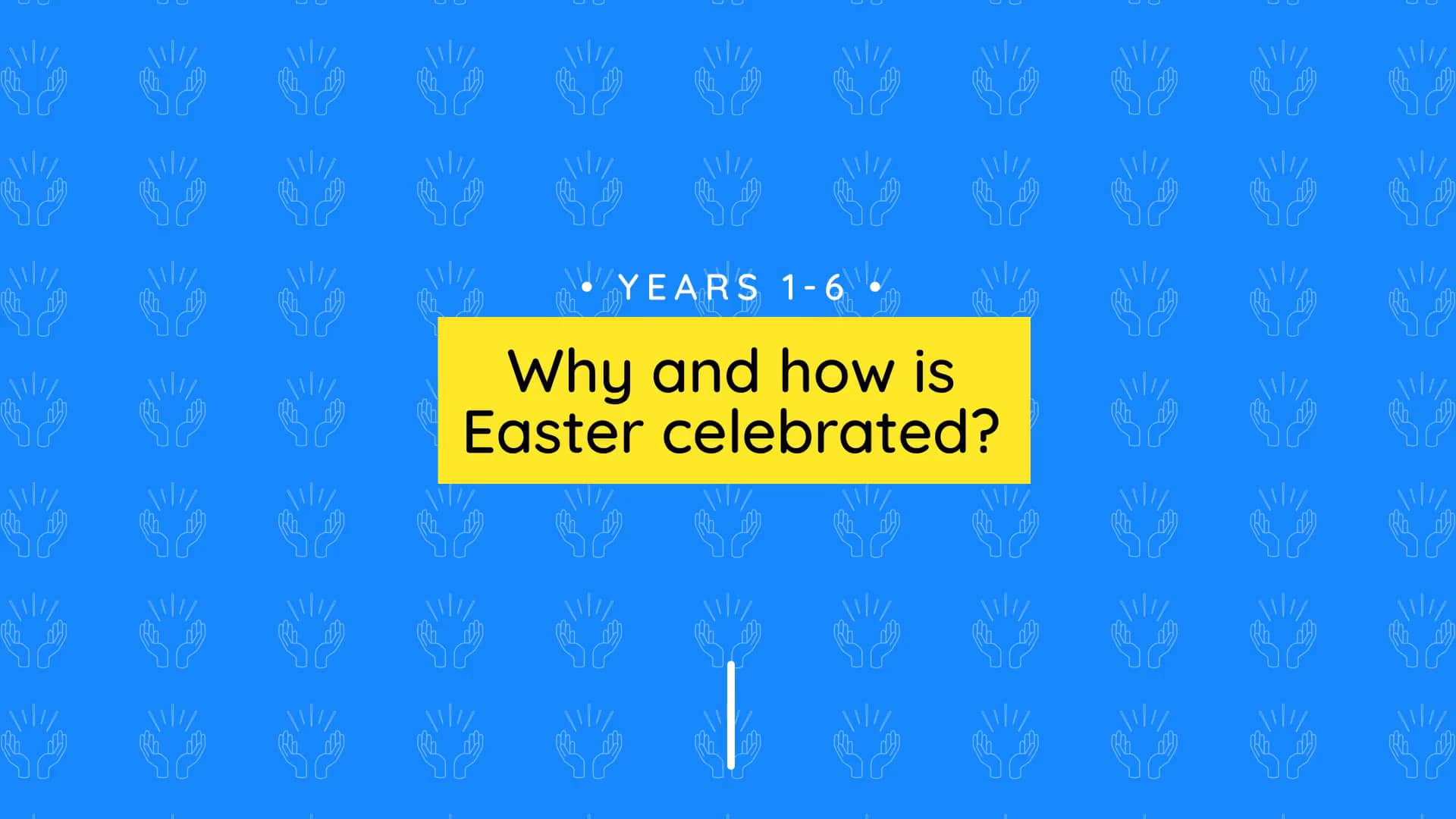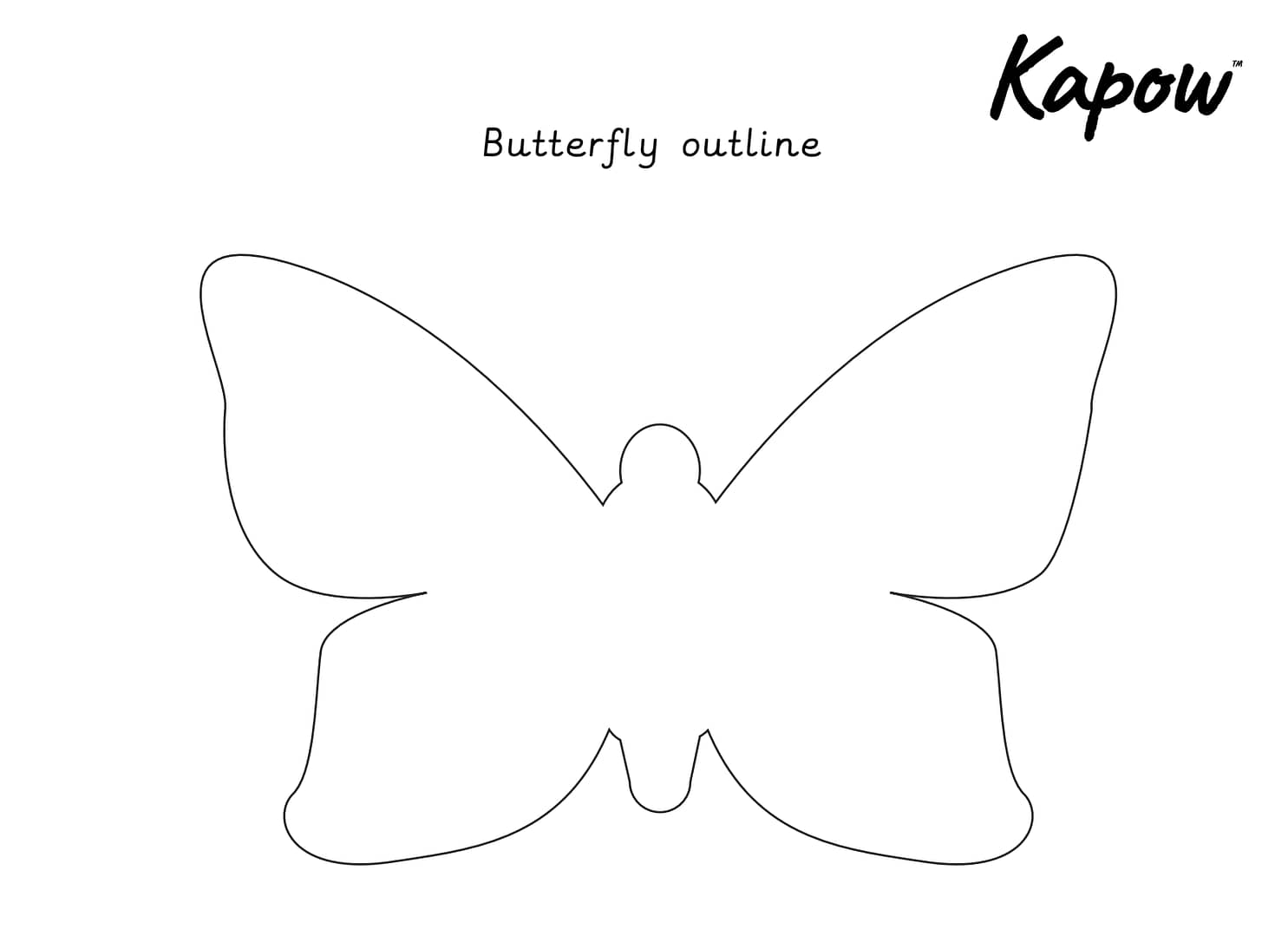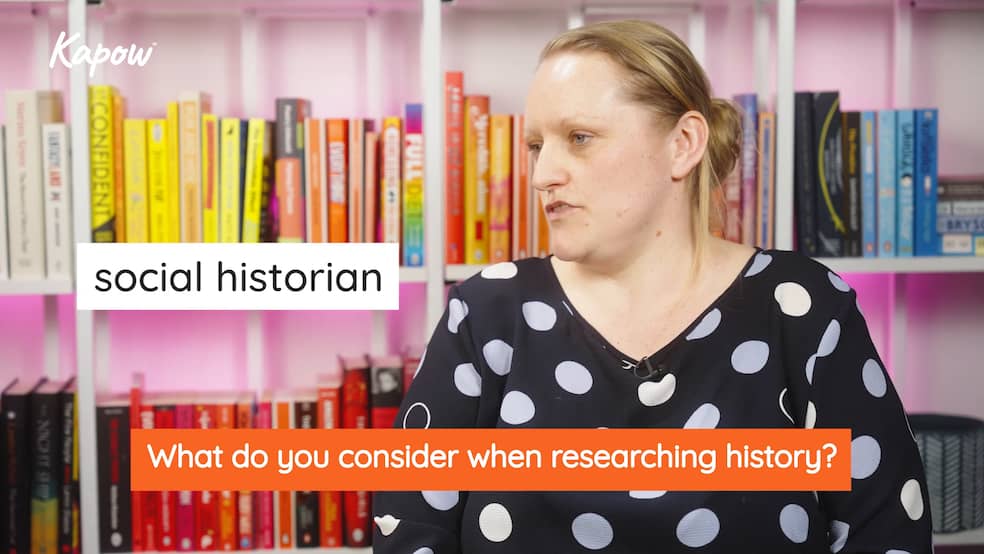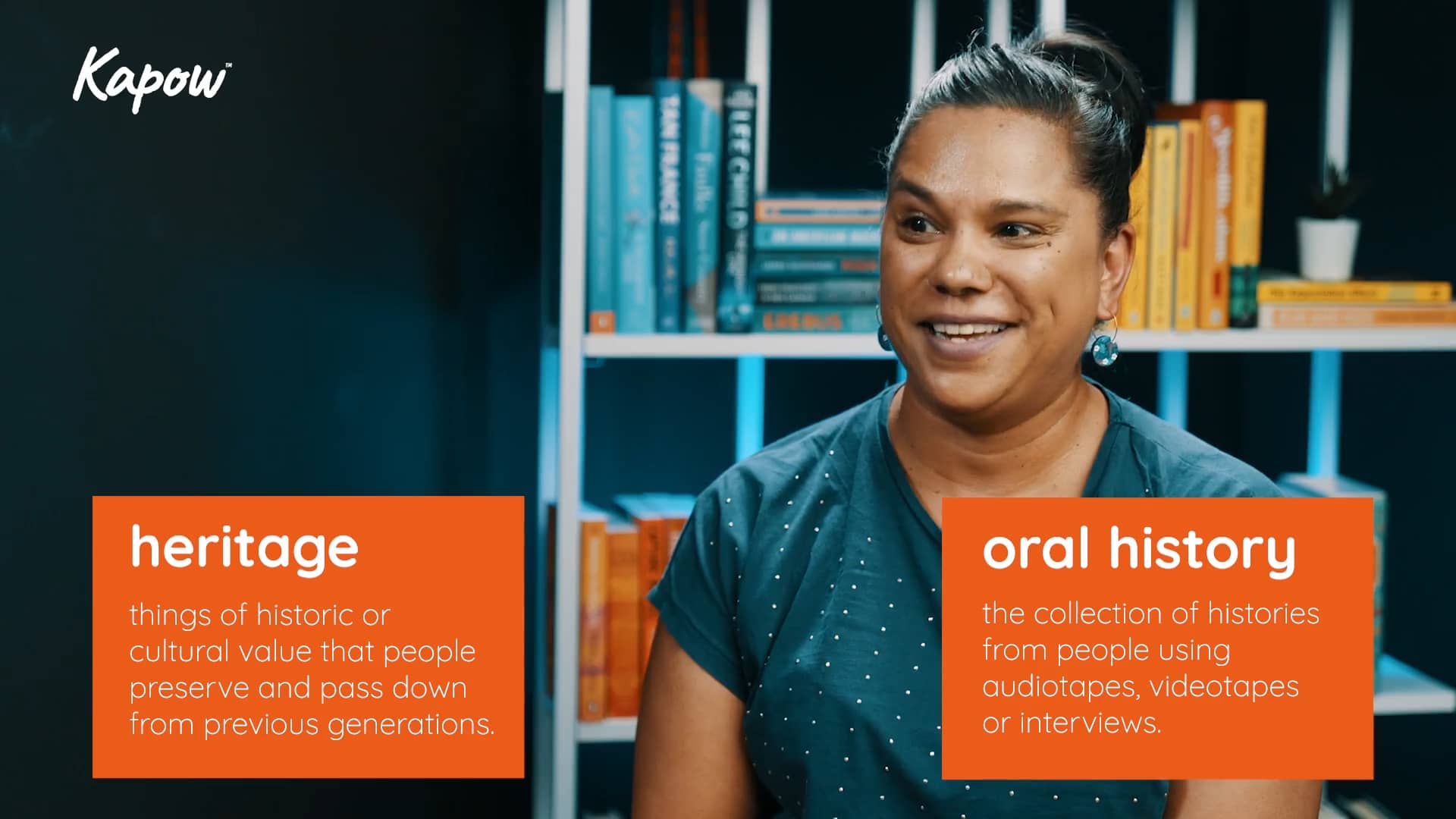An equipment list to help teachers to prepare to teach the Kapow primary mixed-age scheme of work.
year: Year 6
Pupil video: Holy week traditions around the world
This Religion and Worldviews video introduces teachers to the traditions and significance of Holy Week, equipping them with the knowledge to guide Year 6 pupils in understanding the ways Christians around the world commemorate Jesus’ journey to the cross and resurrection. It explores key traditions such as Palm Sunday processions, communion, the carrying of the cross, the lighting of the Paschal candle and Easter Sunday celebrations.
The video highlights how these practices help Christians feel spiritually connected to Jesus and their community, linking past and present through prayer, reflection and symbolic acts of hope and renewal.
This video is part of Kapow Primary’s Religion and Worldviews – Easter series. It simplifies complex religious concepts, ensuring teachers feel confident and prepared to help children explore the meaning and significance of Holy Week in the lesson and unit below:
Religion and Worldviews, Year 5, What might the Easter story suggest about life after death?
Pupil video: Holy week
This Religion and Worldviews video introduces teachers to the Easter story, equipping them with the knowledge to guide KS2 pupils in understanding its significance for Christians. It covers the key events of Easter, including Jesus’ arrival in Jerusalem, the Last Supper, his arrest, crucifixion, and resurrection. The video explains why Christians believe Jesus’ death and resurrection demonstrate God’s love and forgiveness, and how these beliefs shape Christian faith today.
This video is part of Kapow Primary’s Religion and Worldviews – Easter series. It simplifies complex religious concepts, ensuring teachers feel confident and prepared to help children explore the fundamental beliefs and traditions associated with Easter in the lesson and unit below.
Religion and Worldviews, Year 6, Why might some people take part in Easter traditions?
Religion and Worldviews, Year 5, What might the Easter story suggest about life after death?
Webinar: Promoting Positive Behaviour In Your Classroom
Join Emma Symonds and Shelley Amoss for a practical session on fostering a positive school environment and addressing bullying effectively.
This webinar covers:
- Engaging lesson ideas on bullying and kindness
- Practical activities to build empathy and respect
- How to use Kapow Primary’s resources for anti-bullying
- Strategies to embed positive behaviour across the curriculum
- Whole-school approaches to promoting inclusivity
Knowledge organiser – R&W KS2: Why and how is Easter celebrated?
A Knowledge organiser that captures the essential knowledge and skills learnt throughout the whole school Easter collection Religion and worldviews, Why and how is Easter celebrated?.
This resource is designed to support KS2 children as they explore different aspects of Easter, including what Easter can teach about forgiveness, how Easter is celebrated around the world and why these celebrations are important for community and belonging.
Teacher video: Why and how is Easter celebrated?
This Religious Education video guides teachers through an additional unit designed for teaching in the lead-up to Easter, aimed at Years 1 to 6. The unit progressively builds children’s knowledge and understanding of why and how Easter is celebrated, offering a structured approach to exploring key themes and traditions.
The video outlines how children will engage with big questions about Easter through age-appropriate lessons. Key Stage 1 students will learn about the key events from the New Testament, reflecting on the significance of Easter in the Christian calendar. They will explore how the story of Jesus’ resurrection brings hope to many Christians.
In Key Stage 2, the focus shifts to the themes of forgiveness and Jesus’ teachings, encouraging children to reflect on their relevance in daily life. They will also investigate Easter traditions from different cultures, emphasizing community and shared beliefs.
For Key Stage 2, children will make connections between Jesus’ death, resurrection, and the concept of eternal life, exploring Easter’s symbolism and its role in Christian faith. The video explains key Holy Week events, including Palm Sunday, Maundy Thursday, Good Friday, and Easter Sunday, helping students understand their significance.
Beyond Christian perspectives, the unit also examines how Easter is celebrated globally, including both religious and non-religious traditions. It encourages children to approach the topic with a multidisciplinary lens, incorporating sociology, anthropology, and theology.
The video highlights the importance of sensitive discussions about death and resurrection, ensuring children can engage with these themes with compassion and critical thinking. Teachers are advised to address misconceptions, such as the idea that only Christians celebrate Easter or that all Christians believe in physical resurrection.
The unit provides teacher knowledge sections, focused questioning techniques, and strategies for managing sensitive discussions to support teachers. If difficult questions arise, the wonder box approach is suggested, allowing time for thoughtful responses.
This video is part of Kapow Primary’s Religious Education resources, offering structured guidance to help teachers feel confident in delivering engaging and meaningful lessons on Easter.
Butterfly Outline Printable
Use this printable butterfly outline as part of the peppered moth adaptation activity for British Science Week 2025. Pupils can design and decorate their butterflies to blend into different environments, exploring how camouflage helps animals survive. This hands-on task reinforces key science concepts while encouraging creativity and discussion about adaptation, natural selection, and environmental change.
Pupil video: Careers in history – Working as a teacher and historian
An interview with Rosa Legeno-Bell, director of Diverse History UK.
Pupil video: Careers in history – Working as an oral historian
This Kapow History careers video introduces pupils to the world of oral history through an engaging interview with Leona Fensome, a historian working in arts and heritage projects. She shares her journey into history, from childhood experiences with cultural artefacts to her career in researching and documenting untold stories.
The discussion explores how history is still evolving today, particularly through oral history, which allows communities to reclaim and share their perspectives. Pupils will gain insight into how historians research the past, use different sources and uncover hidden histories. Leona also discusses the importance of deep listening, the role of archives, museums and libraries in historical research, and the diverse career paths linked to history.
This video is part of Kapow Primary’s History in Action series, helping pupils understand how history is researched, recorded and continuously shaped by new discoveries and perspectives in lessons like the one below.
See more of our Year 5 and Year 6 History scheme of work and our Mixed-age History scheme of work.


